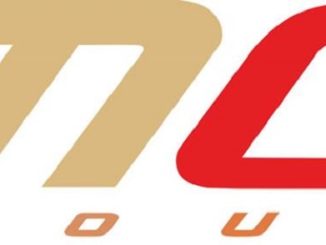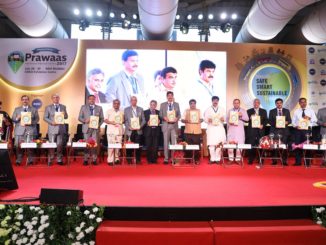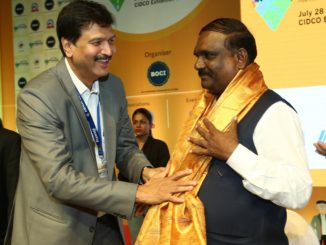Prawaas 2017, is the first edition of a 3-day event, bringing together all stakeholders from the Bus and Car operator associations onto a single platform
MUMBAI, 29 July 2017: The second day of Prawaas 2017 got underway in earnest and with an intent to table problems and possible solutions for bus Operators and the industry in general. Prawaas 2017, which aims to bring all the stakeholders from the Bus and Car Operator Associations onto a single platform is the first edition of an event that will see both public and private bus operators coming together to explore the possibilities of a deeper collaboration involving PPP models.
At the Opening Plenary, Shri. C.P. Singh, Minister of Transport, Jharkhand suggested that through an association like the BOCI, proper systems would be put in place that would enable greater efficiencies. He talked about best practices in other parts of the world citing his own experiences in the US and Australia among other places, where people could set the clock by the schedules of buses there. The Minister talked of the importance of adopting such best practices in India and the need for Government and bus operators to work together to overcome the many obstacles that are currently faced by the latter.
Chaired by Mr. Didier Ramoudt, President Busworld International with eminent panelists including Mr. K.T. Rajashekhara, Chairman, BOCI the CEO Conclave was a discussion on Futuristic Transportation, Solutions – Shaping Tomorrow’s Public Transport. In an illuminating session on the current challenges plaguing the bus industry and state of public transport in the country, the spotlight was on traffic jams and congestion, emission related health issues and safety on the road – India sees about 400 deaths on the road every day and an average of 48,000 bus breakdowns annually. Less than 15% use public transport because of lack of last mile connectivity and seamless public transport solutions. The session captured the essential need for multiple stakeholders to come together including Technology, Social Awareness, Governmental Action and Affordability of Solutions.
The session raised key points including the need to address – high cost of ownership, the need for legal environment to support innovation, need for electric mobility to be economically viable, the fact that one size does not fit all and that each state must design its public transport around the need of its cities, the need for passenger convenience and comfort to make broad based and scaled public transport, the transport of choice and the need for drivers to be educated, trained and given less stressful environments to work in. In conclusion, Mr. Rajashekhara emphasized that it in a country as vast as India, bus operators play a critical role since it is the only means through which even the remotest parts of the country are connected.
In the session on Creating Uniform Regulatory and Policy Framework for Ease of Doing Business, Mr. O.P. Agarwal, CEO, WRI India chaired the session, which explored the need for balance between the Public and Private Operators and the challenges therein. In India, 53% of road transport is taken up by school and employee transport operators; 38% by the private sector and a mere 10% driven by the public sector. With less than 1 bus for every 1000 citizens and a requirement that will reach 20 lakh buses by 2021, the panel delved into the limitations of the current regulations, the ongoing changes and the need to arrive at a One Nation, One Permit and One Tax solution.
Mr. Patwardhan, President, BOCI put forth the thought provoking question – should the government look at public transport as a revenue generating service or a facilitating service. Representatives from the Centre, and the Governments of Karnataka and Maharashtra spoke about the need for careful consideration of both sides of the public-private transport debate to arrive at conclusions that were viable for the industry and more importantly at solutions that were customer-centric and sustainable.
The session on Emerging Opportunities in Multi-Modal Integrated Transport Solutions, chaired by Mr. S.K. Lohia, MD & CEO, Indian Railways Stations Development Corporation saw some interesting long term and sustainable solutions to combat the problems of congestion and its detrimental effects. The discussion embraced intra-city challenges, recommending that land that is currently being used to allow for free parking should be turned into a source of revenue and the earnings from there routed into better public transport and infrastructure.
The discussion also showcased ongoing pilot programs and plans by different governments to make Inter Modal Stations a reality thereby creating seamless connectivity between rail, road, air and even water based transport.
The critical need for the combination of the right policy, a centralized and accountable institution that was empowered to make decisions and a dedicated association like BOCI was highlighted, if multi-modal solutions are going to become a reality.
The session on Role of Transport in Developing Tourism in India was chaired by Mr. Kanwarjit Sawhney, MD, Bakshi Transport Service Ltd. It witnessed Mr. Bharat Bhushan Attree , MD, Caper Travels put across that it is essential for the sector to constantly innovate itself- to study the happenings and latest trends around us and adopt it skillfully in India. The key reason that overseas markets like Thailand and Singapore eat into the tourism market of India is that the former aggressively promote themselves as leisure destinations and that India too should promote itself as there is no dearth of mesmerizing places in the country.
The last session on International Best Practices in Operations, Maintenance & Management chaired by Mr. Anurag Agarwal, State Chairman- Kolkata, BOCI had Mr. Jaspal Singh,Head of UITP India Regional Office, UITP: Advancing Public Transport sharing his thoughts on the key trends in the bus sector shedding light on electrification of bus fleet , alternative fuel, planning and scheduling , account based payment and ticketing and maintenance practices.
Concluding the first day, the Prawaas 2017, Excellence Awards ceremony was conducted in front of a full house. The Awards, held in association with RedBus and Tata Motors was presented across multiple categories covering all aspects of the Bus and Car Operator segment.
About BOCI
Bus Operators Confederation of India (BOCI) was constituted on 4th February 2016. BOCI is a non-government, not-for-profit, Passenger transport industry-led and managed organization that plays a proactive role in India’s development process. The organization promotes, encourages, co-ordinates, safe and secure passenger transport by coach and buses within India and its nearby countries. It acts as interface between thought leaders to enhance efficiency, competitiveness and business opportunities for its members by providing range of specialized services and strategic global linkages. BOCI provides a platform for consensus building and networking on key issues amongst its members. The organization brings in all State associations and Unions under one umbrella to achieve better coordination and confidence by establishing a system of Operator accreditation.



